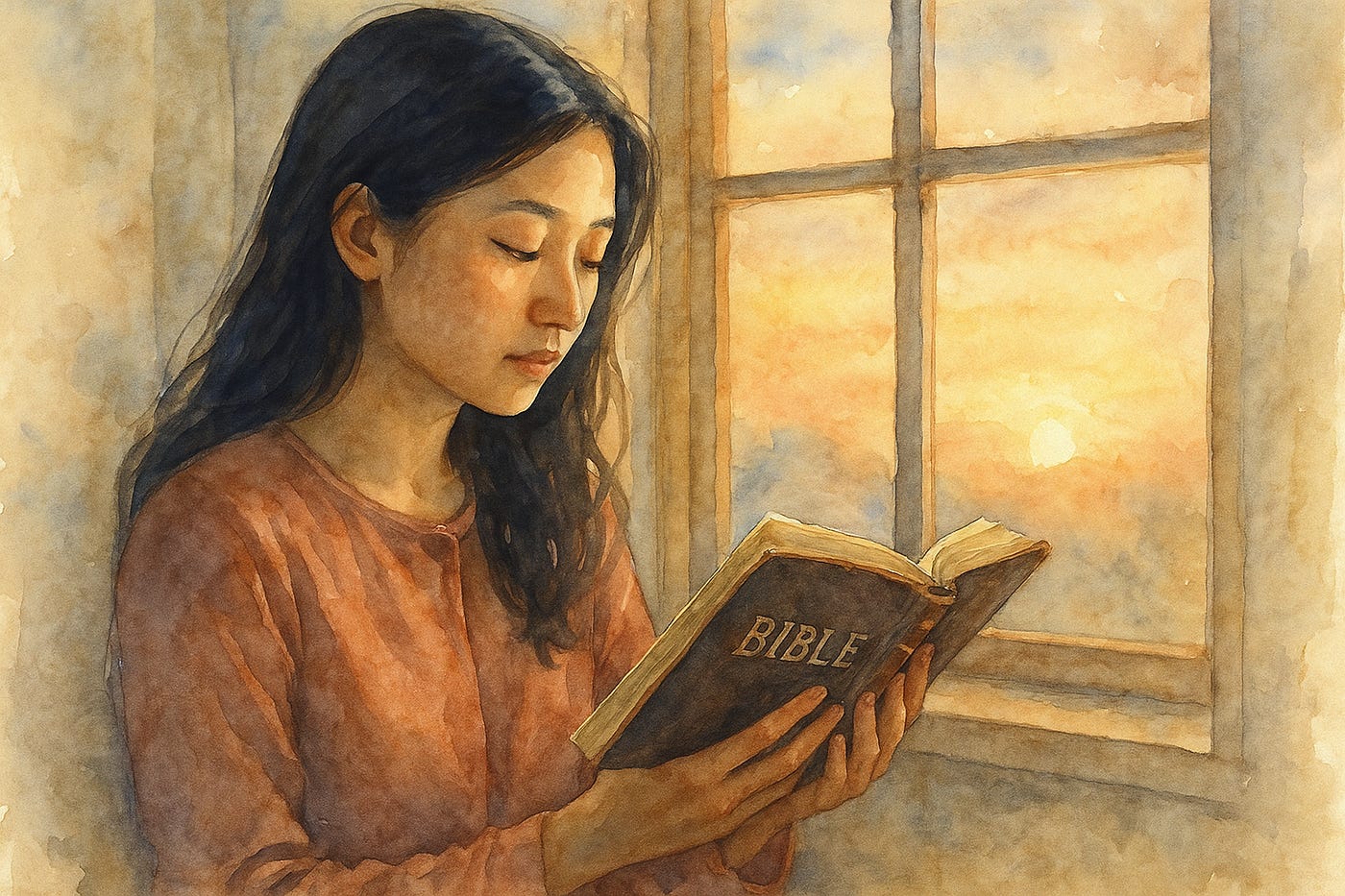How I Read the Bible (Now)
Reading the Bible with Questions in Hand and Faith Still Intact
This reflection was originally published on Medium under the “Even Here” publication.
Read it there → Even Here
There was a time when I thought honoring Scripture meant defending it — explaining away its tensions, harmonizing every detail, and insisting on a kind of flawless perfection. I thought faith meant certainty, and certainty meant having answers for everything the Bible said.
Back then, I thought my next step might be to study apologetics. I wanted to be able to defend Christianity well. But before I could do that, a quiet realization surfaced:
How can I defend something I don’t yet fully understand?
What am I defending, really?
That question led me down a different path — into theology. Not to win arguments, but to learn more about who God is, what the Christian faith actually teaches, and why it matters. And though theology is not the same as knowing God personally, I hoped — and still hope — that in learning more about Him, I would be drawn deeper into relationship with Him.
The Bible Is Both Divine and Human
Seminary was a gift, but also a shaking.
I remember sitting in class, learning for the first time that the story of the Flood in Genesis bore striking similarities to ancient Near Eastern myths — like the Epic of Gilgamesh. I was stunned. I didn’t know what to make of it. It was as if someone had pulled the rug out from under the neat, stable version of Scripture I’d always assumed.
But that disorientation became a doorway. Slowly, I began to understand: this doesn’t mean the Bible is less true. It means God chose to speak in the language of real people, in real cultures, using real forms of literature that were familiar to them. Just as Jesus walked dusty roads and spoke Aramaic, so too Scripture comes to us wearing the clothes of its time.
That doesn’t make it less inspired. It makes it incarnational.
I Read the Bible as a Story — With Jesus at the Center
I’ve stopped expecting every passage in the Bible to work the same way. Some teach, some tell stories, some wrestle with questions, some speak through symbols and poetry. I’m learning that each part needs to be read on its own terms — with attention to genre, voice, and purpose — so I can better hear what it’s trying to say, rather than what I want it to say.
Instead, I look for the larger story it tells: of a God who creates, redeems, and restores. A God who speaks through Israel, fulfills His promises in Jesus, and continues His work through the Church.
Jesus, to me, is not just the subject of the New Testament — He’s the lens through which I read the whole of Scripture. He reorients my understanding of what God is like. He reframes the laws, the prophecies, the wisdom texts. In Him, I see the fullness of God’s faithfulness — not in static perfection, but in relational movement.
I Welcome the Questions
The questions don’t scare me anymore.
I don’t see biblical scholarship as a threat to faith. I see it as a gift — something that helps me ask better questions and listen more carefully to what Scripture is doing.
Yes, I believe the Bible is authoritative. But its authority isn’t rooted in modern definitions of accuracy or consistency. It’s rooted in the One it reveals. That allows me to approach it with reverence, without having to pretend it’s something it’s not.
And I trust the Holy Spirit to help me hear — not just the words on the page, but the living Word behind them. Not every question leads to a clear answer, but sometimes it leads to deeper dependence.
I’m Still Learning
This isn’t a conclusion — it’s a posture.
I’m still learning to read Scripture with both curiosity and trust, with humility and hope. I’m still navigating how to hold together mystery and meaning. I don’t always know how to reconcile it all. But I’ve come to believe that I don’t have to.
God is not afraid of my questions.
If you’ve wrestled with the Bible — if you’ve felt torn between faith and questions, between reverence and realism — I want you to know: there’s room for you here.
You don’t have to choose between intellectual honesty and spiritual devotion.
You can hold both.
I’m trying to.
Even here.
📖 “Your word is a lamp to my feet and a light to my path.”
— Psalm 119:105
🙏 A Prayer for Those Who Read
Lord,
Thank You for speaking — not just in thunder or tablets, but in human words, through human voices.Help me listen with reverence and humility.
Help me welcome the questions without fear, and trust Your presence even in the tension.Let Your Word be a lamp to my feet, not to satisfy my need for certainty, but to sustain my walk with You.
Teach me to read with wisdom.
To see Christ at the center.
And to keep walking — honestly, slowly, faithfully.Even here.
Amen.



